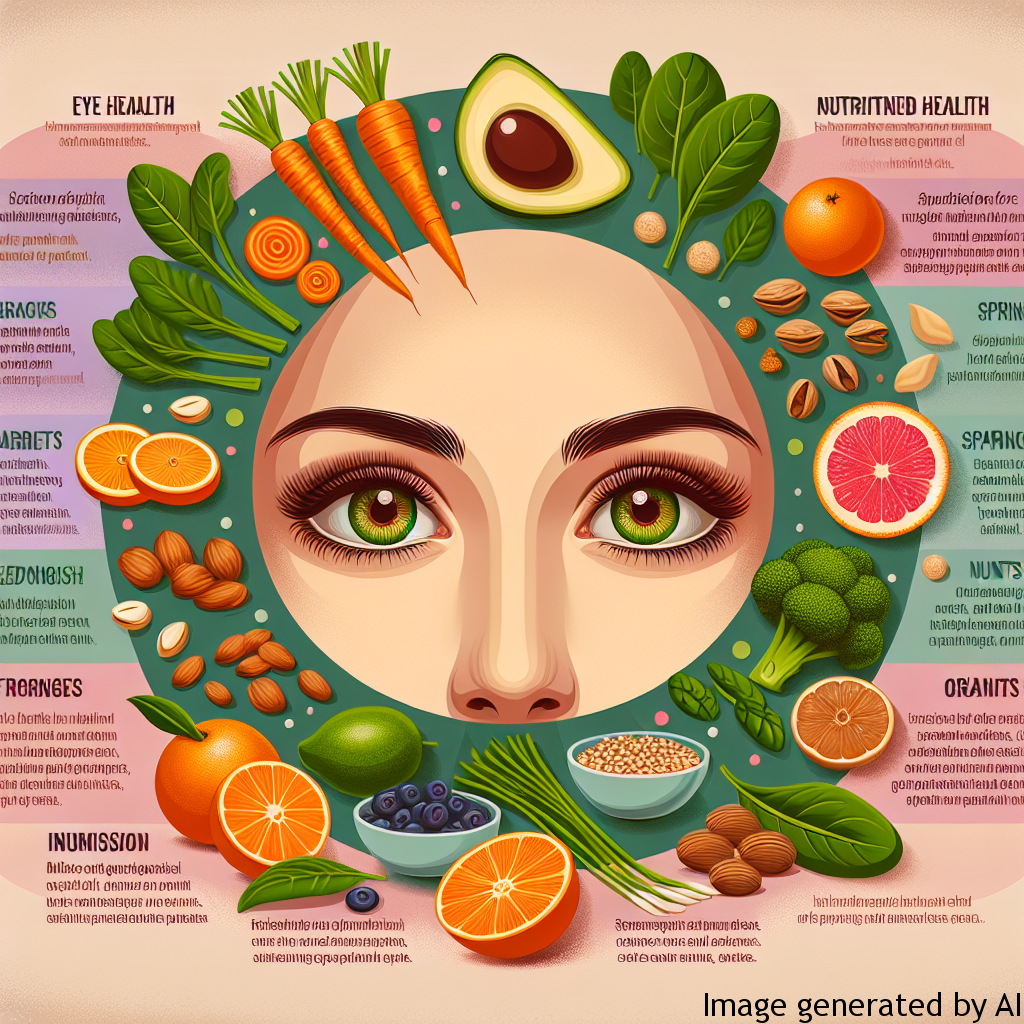Introduction
Healthy vision is a vital component of overall wellness. Much like the heart, lungs, and other crucial bodily structures, our eyes require essential nutrients to operate at their peak. There is a growing body of research that supports the role of nutrition in maintaining and improving eye health. From green vegetables to oily fish, certain foods and dietary patterns can supply the nutrients necessary for supporting your eye health.
Nutritional Expectations for Eye Health
It is proven that your diet can influence the health and longevity of your vision. Eating food rich in particular nutrients can help prevent certain eye conditions.
Vitamins
Vitamins like A, C, and E are all crucial for the health of your eyes. Vitamin A is essential for good vision, and it is found in foods like carrots and sweet potato. Vitamin C, which is found in oranges, strawberries, peppers and broccoli, can help to protect your eyes against damaging UV rays. Vitamin E is a powerful antioxidant that protects against eye conditions. You can get Vitamin E from nuts and seeds.
Omega-3 Fatty Acids
Omega-3 fatty acids have been shown to help with eye health. They can be found in oily fish, such as salmon and mackerel, as well as flaxseeds and walnuts.
Examples of How Nutrition Can Influence Eye Health
Age-Related Macular Degeneration (AMD), cataracts, dry eyes, and even glaucoma all have nutritional implications. Consuming a healthy diet rich in fruits, vegetables and lean proteins, like fish, can help keep your eyes healthy.
Age-Related Macular Degeneration
AMD is a common condition in older people that results in a loss of vision in the center of the visual field. However, a diet high in zinc, as well as vitamins C and E, can help to slow down this condition.
Cataracts
Cataracts are often related to aging, but the progression can be slowed by a good diet, particularly one high in antioxidants, like Vitamin C.
Tips to Improve Eye Health Considering Nutritional Needs
Maintain a healthy weight and avoid smoking. Drink alcohol in moderation and protect your eyes from harmful ultraviolet rays. Regular exercise and a good diet, filled with green leafy vegetables and fish, can help to keep your eyes healthy. Furthermore, regular visits to an optometrist to check up on your eye health are also vital.
Conclusion
While the eyes may be small, they require plenty of nutrition to function properly. Whether it’s vitamin A for good vision, or omega-3 fatty acids to prevent dry eyes, the foods we eat play a significant role in keeping our eyes healthy. So next time you’re planning your meals, think about how your diet can enhance your eye health.

